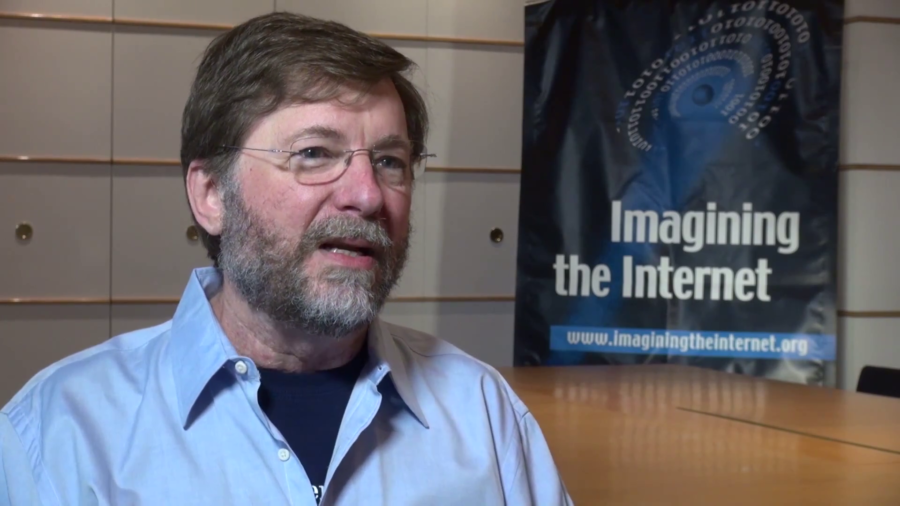Eric Allman: Well, you know I never really considered myself a leader per se. I certainly didn’t set out to become that. I worked on very early versions of email on the ARPANET, actually. And the problem that I was trying to solve was that there were a lot of networks—the ARPANET was just one of them—and people wanted to send email between these networks. And so I built a gateway to shuffle email back and forth. So one could argue that it was sort of the first truly internet—lower-case‑I internet—mailer, so far as I know. There may have been others.
When the Internet came along, Bill Joy talked me into writing the mailer. This was at Berkeley, of course. I never worked on the Berkeley Unix project, but I’d you know volunteered a bunch of stuff. And so Bill Joy somehow talked me into converting what I had written over to run on the capital‑I Internet. And that’s one of those things where if I had had any idea how much work I was going to do I never would’ve agreed to do it, because it wasn’t my job. And it wasn’t my job for many many years. But it was something that was absolutely essential. People really needed it. People used to. And it became quite successful. It was at one point running 70, 80% of the Internet mail servers on the network.
Intertitle: Describe one of the breakthrough moments of the Internet in which you have been a key participant?
Allman: Well, it would be hard to pick something out entirely. I mean there are stories both good and bad. I remember at one point, I got this…I guess it was email or maybe it was even a phone call from somebody who wanted to do something particularly unusual with sendmail and was trying to figure out how to do it. And I kinda walked him through it, and went back and forth. It wasn’t completely clear what he was trying to do. And he finally sent me mail saying you know “Okay, I got it.” And then called me later and said “I thought you might like to know what we were doing.” And this was before the Cold War was over. And they had found a way to route mail from kids in the Chicago public schools to kids in the Moscow public schools. And had set up a pen pal program between Chicago and the USSR. And so the kids loved it because they could send a message and they’d have a response the next day, because of the way the time zones worked. And it just seemed all of a sudden like the world was a little tiny bit smaller. That was great.
Of course then there was spam. So… You know, email has definitely not been something that is entirely good. There’s been a lot of problems with it. And I do think that in the early days of the Internet we were kind of colleagues trying to share things amongst ourselves. When the Internet went commercial, I don’t think anyone really understood that that required a different economic model. And spam was just a result of the fact if you can give somebody a way to potentially make even a small amount of money for free, they will do that. And they did.
Intertitle: Describe the state of the Internet today with a weather analogy and explain why.
Allman: Kind of like today, I suppose. You know, a little overcast, maybe patches of rain. But I have to say there’s gathering clouds. There’s a bunch of things that very much disturb me. Part of the problem is the… Well, two things ironic. One is the apparent anonymity of the network encourages people to really act out in inappropriate ways. There’s nothing new there. But the flipside of it is that increasingly our lives are being opened up more and more. Things that we don’t realize have significance do have significance in the hands of people who know how to consume the data. And there’s some very real concerns there.
The questions about network neutrality are also disturbing. On the one hand I can understand the argument that says that people who create the most cost should pay the most, and that seems actually fairly egalitarian. But it does create a world where it’s very difficult for new people to come in. So it tends to consolidate the power in a few large companies. And in fact we’ve seen a lot of consolidation of large companies lately, not just in the Internet world but everywhere. And I’m becoming very very concerned that the corporate world, which I don’t ascribe as evil per se, but what companies want is different from what the people want. And there should always be a balance of power. And I think we’re getting out of balance there.
